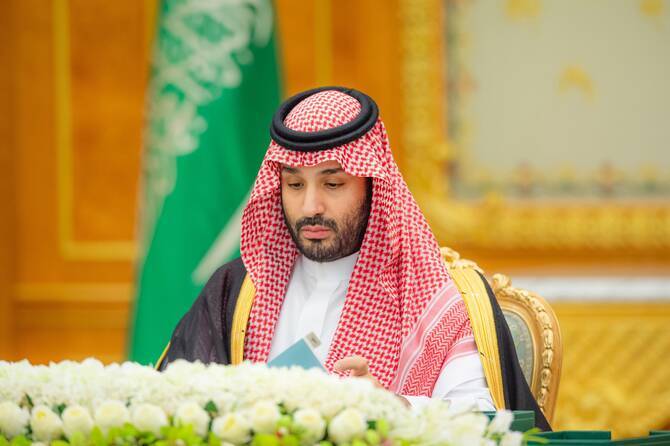Saudi-US Cooperation Deepens Across AI, Nuclear Energy and Mineral Sectors During High-Level Washington Visit
Washington — Crown Prince Mohammed bin Salman concluded a two-day visit to the United States on Thursday, marking a significant phase in strengthening cooperation across technology, energy and strategic industries.
The visit followed US President Donald Trump’s earlier trip to Riyadh in May, continuing a series of high-level engagements aimed at reinforcing long-standing bilateral ties.
During discussions at the White House, both sides reviewed regional and international developments, focusing on areas where closer coordination could support mutual stability and shared strategic goals.
Talks highlighted opportunities to expand cooperation in advanced technologies, with artificial intelligence, nuclear energy and critical minerals emerging as central pillars of future collaboration.
A joint declaration on civil nuclear energy was signed, outlining frameworks for cooperation in nuclear safety, uranium supply chains and peaceful energy development.
The agreement also includes new commitments on investment facilitation, financial partnerships, and alignment on capital markets to support cross-border economic activity.
Both nations endorsed a memorandum of understanding on education and training, aimed at enhancing knowledge exchange and preparing their workforces for emerging high-skill sectors.
The White House described the overall package of agreements signed since May as a major expansion of the bilateral partnership, placing Saudi investment commitments in the US near the $1 trillion mark.
This week’s signatures included the Strategic Defense Agreement, the Critical Minerals Framework and a new AI Strategic Partnership designed to accelerate joint innovation.
A state dinner hosted by President Trump and First Lady Melania Trump on Tuesday brought together senior officials, legislators and industry leaders from across the country.
The gathering underscored the importance both nations place on diplomatic continuity, while emphasizing the economic dimension of their cooperation.
On Wednesday, the crown prince attended the US–Saudi Investment Forum, where the two sides announced agreements and memorandums of understanding valued at approximately $270 billion.
These agreements covered sectors including technology, advanced manufacturing, transportation, energy transition initiatives and supply-chain resilience projects designed to support rapid industrial growth.
The crown prince also held separate meetings with US House Speaker Mike Johnson, along with members of the Senate and House committees involved in foreign affairs and national security.
These discussions focused on legislative cooperation, as well as opportunities to strengthen trade and address shared geopolitical challenges.
At the conclusion of the visit, the crown prince expressed appreciation to President Trump for the warm hospitality and close engagement extended to the Saudi delegation.
The Saudi delegation included senior ministers and advisors, representing sectors such as energy, foreign affairs, national security, commerce, finance and sovereign investment.
Senior Saudi officials in attendance included Prince Abdulaziz bin Salman, Princess Reema bint Bandar, Prince Faisal bin Farhan, Musaed Al-Aiban and Majid Al-Qasabi.
Also present were Mohammed Al Al-Sheikh, Finance Minister Mohammed Al-Jadaan, US–Saudi Partnership Council Secretary-General Mohammed Al-Tuwaijri, and PIF Governor Yasir Al-Rumayyan.
From the US side, key participants included Vice President JD Vance, Secretary of State Marco Rubio, Secretary of the Treasury Scott Bessent and Secretary of War Pete Hegseth.
Also attending were Secretary of Commerce Howard Lutnick, Secretary of Energy Chris Wright and White House Chief of Staff Susie Wiles.
The conclusion of the visit marks a continued expansion of cooperation across economic, defense and technological fields, with both countries signaling readiness to pursue deeper partnership in areas of strategic importance.
The agreements signed this week are expected to shape next-generation cooperation, setting the stage for long-term collaboration in innovation, energy diversification and industrial growth.



